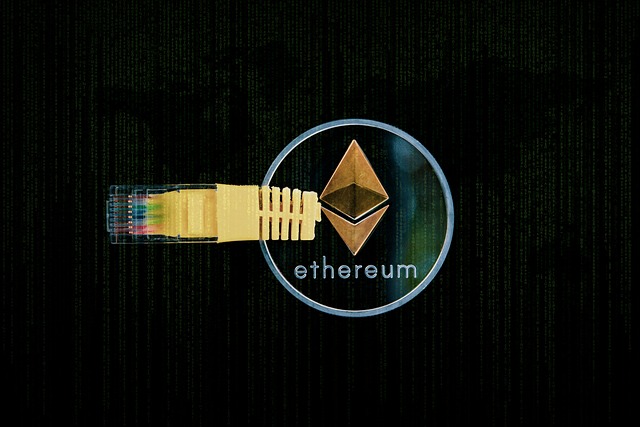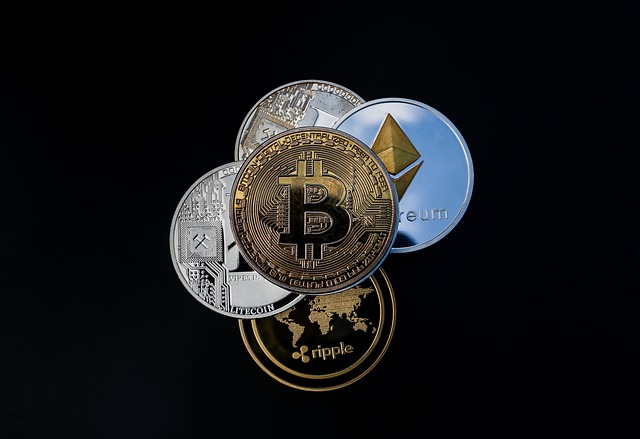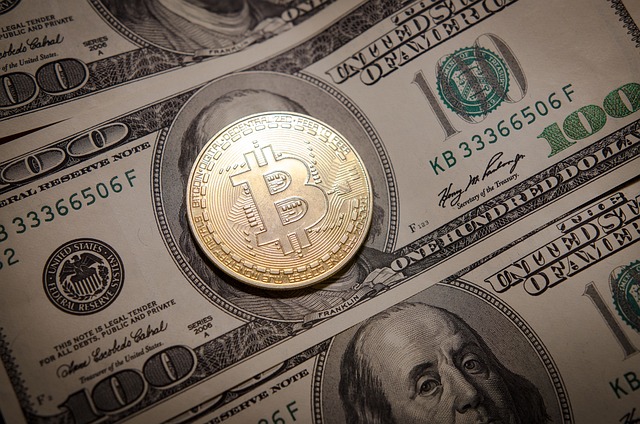The Top DeFi Projects to Watch in [Year]
The Top DeFi Projects to Watch in [Year]

A Glimpse into the Future of Decentralized Finance
Decentralized finance, also known as DeFi, has been making waves in the financial world in recent years. With the emergence of blockchain technology, the potential for transforming traditional banking systems and financial services has grown exponentially. The future of DeFi holds the promise of greater accessibility, transparency, and efficiency in the financial sector.
One of the key areas where decentralized finance is expected to make a significant impact is in lending platforms. Currently, the lending process is often centralized, involving middlemen and lengthy approval processes. However, with DeFi, the lending process can become more streamlined and accessible to a wider range of individuals. Smart contracts and blockchain technology can facilitate peer-to-peer lending, eliminating the need for intermediaries and potentially reducing costs for borrowers. This shift towards decentralized lending platforms has the potential to democratize access to credit, particularly for individuals who have been historically underserved by traditional banking systems.
As we look to the future, it is clear that decentralized finance will continue to revolutionize the financial landscape. From decentralized exchanges to the rise of stablecoins and the growing importance of oracles, the possibilities for innovation and disruption are endless. The DeFi space is still in its early stages, but the potential for transforming traditional financial systems is immense. By embracing decentralized finance, we can empower individuals, foster financial inclusion, and pave the way for a more equitable and accessible financial future.
Unleashing the Power of Blockchain in the Financial World
The financial world is bracing itself for a technological revolution, and at the forefront of this movement is blockchain. This powerful technology has the potential to disrupt and reshape traditional financial systems as we know them. Its decentralized nature eliminates the need for intermediaries, making transactions faster, more secure, and more transparent.
One of the key benefits of blockchain in the financial world is its ability to provide immutable and auditable records.

Exploring the Most Innovative Decentralized Finance Initiatives
In the exciting world of decentralized finance (DeFi), there are countless innovative initiatives emerging that aim to revolutionize the traditional financial system. One such initiative is the concept of decentralized lending platforms. These platforms leverage the power of blockchain technology to allow borrowers and lenders to interact directly with each other, without the need for intermediaries like banks. By cutting out the middleman, decentralized lending platforms provide a more efficient and cost-effective way for individuals and businesses to access loans. This not only empowers borrowers by giving them greater control over their finances, but it also opens up new investment opportunities for lenders who can earn interest on their funds.
Another groundbreaking development in the DeFi space is the rise of decentralized exchanges (DEXs), which are poised to revolutionize peer-to-peer trading. Unlike traditional centralized exchanges, DEXs operate on a blockchain and allow users to trade directly with one another, without the need for an intermediary. This not only eliminates the risks associated with centralized exchanges, such as hacking or manipulation, but it also enables individuals to retain control over their funds at all times. With the growing popularity of DEXs, we can expect to see a shift towards a more democratized and inclusive financial system, where anyone, regardless of their background or geographical location, can participate in peer-to-peer trading with ease. These innovative decentralized finance initiatives are just the beginning of what promises to be a transformative journey towards a more inclusive and sustainable financial ecosystem.
Revolutionizing the Traditional Banking System with DeFi
Decentralized finance (DeFi) is poised to revolutionize the traditional banking system by providing a more inclusive and accessible financial ecosystem. With DeFi, individuals can bypass the need for intermediaries such as banks and take control of their own finances. This paradigm shift allows for greater financial freedom for individuals, especially those who are unbanked or underbanked.
One of the key features of DeFi is its ability to offer permissionless lending and borrowing. Traditional banks often have stringent requirements for obtaining loans, making it difficult for individuals with limited credit history or collateral to access funds. However, DeFi platforms eliminate these barriers by leveraging blockchain technology. Through smart contracts, individuals can lend or borrow funds directly from other participants in the network, without the need for credit checks or middlemen. This opens up a world of opportunities for entrepreneurs, students, and individuals who may have previously been excluded from the traditional banking system.
Navigating the Dynamic Landscape of Decentralized Lending Platforms
Decentralized lending platforms have emerged as a disruptive force in the traditional financial landscape. Built on blockchain technology, these platforms offer individuals the opportunity to lend and borrow funds without the need for intermediaries such as banks. The dynamic nature of these platforms presents both opportunities and challenges for users.
One of the key advantages of decentralized lending platforms is the accessibility they provide. Unlike traditional banking systems, which often require extensive documentation and credit checks, decentralized lending platforms allow individuals from all walks of life to access funds. This inclusivity empowers individuals who may have previously been excluded from the traditional financial system due to lack of credit history or collateral. Additionally, the absence of intermediaries means lower transaction fees and faster processing times, resulting in a more efficient borrowing and lending experience.
However, navigating the dynamic landscape of decentralized lending platforms can be daunting for newcomers. Many different platforms have emerged, each with its own unique features and lending protocols. Understanding these protocols and choosing the right platform can be a challenging task. Additionally, the decentralized nature of these platforms means that users need to take extra precautions to ensure the security of their funds. As there is no central authority to oversee transactions, users must rely on smart contracts and blockchain technology to safeguard their assets. It is crucial for users to conduct thorough research and due diligence before engaging with any decentralized lending platform to mitigate potential risks and make well-informed decisions.
The Rise of Decentralized Exchanges: Empowering Peer-to-Peer Trading
In recent years, decentralized exchanges (DEXs) have been gaining significant traction in the world of cryptocurrency trading. Unlike traditional centralized exchanges, which require users to trust a third-party intermediary to facilitate their transactions, DEXs enable peer-to-peer trading directly from users’ wallets. This innovative approach not only eliminates the need for intermediaries but also enhances privacy and security for traders.
One of the key advantages of DEXs is the decentralized nature of the platforms. Instead of relying on a central authority to control the exchange and hold users’ funds, transactions on DEXs occur on the blockchain itself, ensuring that users maintain full control over their assets at all times. This level of control and transparency resonates with the broader philosophy behind cryptocurrencies, empowering individuals to take charge of their financial transactions without depending on a centralized authority. With the rise of decentralized exchanges, peer-to-peer trading is set to become more accessible, secure, and efficient than ever before.
Uncovering the Potential of Yield Farming in the DeFi Space
Yield farming has emerged as one of the most exciting opportunities in the decentralized finance (DeFi) space, captivating the attention of both seasoned crypto enthusiasts and curious newcomers. But what exactly is yield farming, and why is it garnering so much buzz? In simple terms, yield farming involves earning rewards by staking or lending cryptocurrency assets on DeFi platforms. It’s like putting your money to work in a digital farm, where you can reap the benefits of high yields and lucrative returns. With yield farming, individuals can maximize their earnings by leveraging their crypto holdings in a decentralized manner, without the need for intermediaries such as banks or traditional financial institutions.
The potential of yield farming lies in its ability to drastically increase liquidity in the DeFi space. As users lock up their crypto assets in various lending or yield farming protocols, it creates a constant supply of liquidity that can be tapped into by other users, enabling seamless trading and lending. This increased liquidity not only boosts the efficiency of the DeFi ecosystem but also opens up endless possibilities for new financial products and services.

• Yield farming involves earning rewards by staking or lending cryptocurrency assets on DeFi platforms
• It allows individuals to maximize their earnings without intermediaries like banks
• Yield farming increases liquidity in the DeFi space, enabling seamless trading and lending
• The increased liquidity opens up possibilities for new financial products and services
• Yield farming incentivizes users to actively participate in the growth of the DeFi ecosystem
Diving into the World of Decentralized Stablecoins and their Impact
Decentralized stablecoins have emerged as a game-changer in the world of finance. These digital currencies are designed to maintain a stable value by pegging them to an external asset. Unlike traditional cryptocurrencies, such as Bitcoin and Ethereum, which are known for their high volatility, decentralized stablecoins offer a reliable alternative for users seeking price stability.
One of the main impacts of decentralized stablecoins is their potential to provide financial stability for individuals in countries with weak or unstable fiat currencies. By using decentralized stablecoins, people can protect their wealth from devaluation or hyperinflation, as the value of these stablecoins remains tied to a more stable asset, such as the US dollar or gold. This opens up new opportunities for individuals in these countries to access global markets and participate in the digital economy without being hindered by the limitations of their local currency. Moreover, decentralized stablecoins also enable faster and cheaper cross-border transactions, eliminating the need for traditional banking intermediaries and their associated fees. The impact of decentralized stablecoins is far-reaching, transforming the way individuals and businesses store and transact value in a globalized financial landscape.
The Growing Importance of Oracles in Decentralized Finance
Oracles play a crucial role in the world of decentralized finance (DeFi) by bridging the gap between the blockchain and real-world data. In simple terms, oracles act as trusted sources of information that feed data into smart contracts on the blockchain. These smart contracts then execute actions based on the verified data provided by the oracles.
The importance of oracles in DeFi cannot be overstated. They enable DeFi platforms to interact with external data, such as price feeds, market data, and even real-world events like weather conditions. By relying on oracles, DeFi applications can make informed decisions and execute transactions automatically, without requiring any human intervention. This automation and access to real-world data are crucial for DeFi to truly disrupt traditional financial systems and offer innovative solutions to users.
Discovering the Future of Decentralized Insurance in DeFi
Decentralized insurance, also known as DeFi insurance, is an emerging concept that has the potential to revolutionize the traditional insurance industry. With the advent of blockchain technology, DeFi insurance aims to provide a transparent and decentralized platform where users can protect their assets and mitigate risks without relying on traditional insurance providers. This innovative approach not only eliminates the need for intermediaries but also offers enhanced security, efficiency, and affordability.
In the world of DeFi insurance, smart contracts play a crucial role.

What is decentralized insurance in DeFi?
Decentralized insurance in DeFi refers to insurance products and services that are provided using blockchain technology and smart contracts, eliminating the need for traditional insurance intermediaries.
How does decentralized insurance work?
Decentralized insurance works by connecting individuals who want insurance coverage with investors who are willing to underwrite the risk. Smart contracts are used to automate the insurance process, ensuring transparency and trust in claims payouts.
What are the benefits of decentralized insurance in DeFi?
Decentralized insurance offers several benefits, such as lower costs, faster claims processing, increased transparency, and the ability to customize insurance coverage to individual needs.
Are there any risks associated with decentralized insurance?
Like any financial product, decentralized insurance carries some risks. These risks include smart contract vulnerabilities, regulatory uncertainties, and the potential for scams or fraudulent activities. It’s important to do thorough research and due diligence before participating in decentralized insurance.
How does decentralized insurance revolutionize the insurance industry?
Decentralized insurance revolutionizes the insurance industry by removing the need for intermediaries, reducing costs, and increasing accessibility. It also promotes transparency and trust through the use of blockchain technology and smart contracts.
Can decentralized insurance provide coverage for all types of risks?
Decentralized insurance has the potential to provide coverage for a wide range of risks, including but not limited to property damage, health emergencies, travel mishaps, and even unconventional risks like smart contract failures or hacks.
How can I participate in decentralized insurance in DeFi?
To participate in decentralized insurance in DeFi, you can research and join decentralized insurance platforms that offer insurance coverage. These platforms often require users to hold specific tokens or provide liquidity to participate in the insurance pool.
Is decentralized insurance regulated?
The regulatory landscape for decentralized insurance is still evolving. While some countries have started to provide regulatory frameworks for DeFi, it’s important to note that decentralized insurance may operate in a more decentralized and global manner, making regulation more challenging.
Can decentralized insurance replace traditional insurance companies?
Decentralized insurance has the potential to disrupt traditional insurance companies by offering lower costs and increased transparency. However, it is unlikely to completely replace traditional insurance companies in the near future, as there are still challenges to overcome and many people still rely on traditional insurance for certain types of coverage.
What is the future of decentralized insurance in DeFi?
The future of decentralized insurance in DeFi looks promising, with more innovative solutions emerging and greater adoption of blockchain technology. As the technology matures and regulatory frameworks develop, decentralized insurance has the potential to become a mainstream alternative to traditional insurance.
Todays Featured Product:
Buy, exchange and grow your crypto securely with a Ledger hardware wallet, combined with the Ledger Live app. It’s never been easier to keep your crypto safe and accessible. Buy direct from Ledger.com and get todays Special Offers Here.




